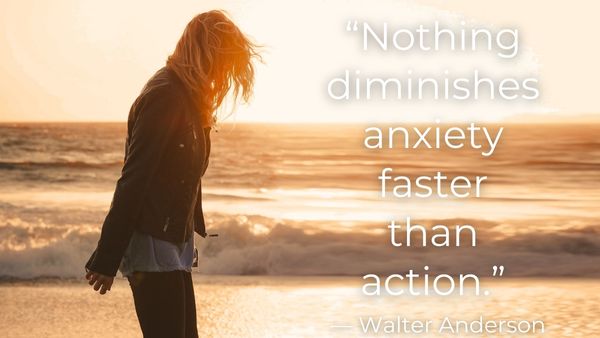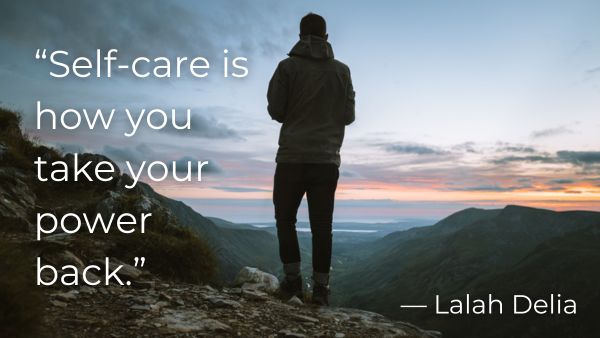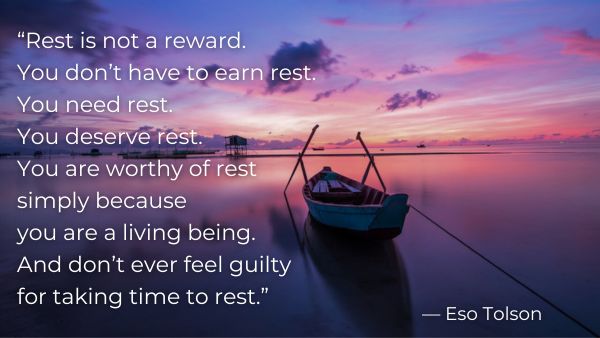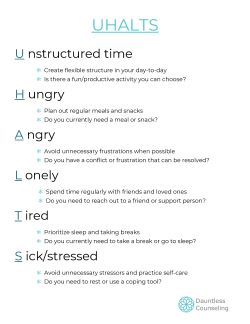Anxiety can be influenced by a variety of factors, and understanding them is essential for effectively managing this condition. To make it easier to remember these key anxiety-aggravating elements, you can use the UHALTS acronym.
UHALTS stands for:
- Unstructured time
- Hungry
- Angry
- Lonely
- Tired
- Sick/Stressed
Knowing each of these factors can help you to identify ways to decrease your anxiety when each factor is at play. For most UHALTS, you can come at the situation from two directions.
First, you can try looking to prevent or minimize each of these situations as much as possible (this may or may not be possible with all of the factors).
From the other direction, if you realize that you’re experiencing more anxiety than you typically do, it can be helpful to check in and see if any UHALTS are at play. If so, you can see what you can do to manage the situation.
Let’s talk about each of the UHALTS to look out for.
Table of Contents

Unstructured Time
The first factor to be on the lookout for is having too much unstructured time, i.e., when you’re bored or not really doing anything in particular.
The problem with having too much unstructured time is that it can leave a lot of room for OVER thinking. While your imagination can be a wonderful thing, the combination of anxiety and unstructured time can result in a less-than-ideal situation.
If you notice that you have periods of unstructured time, especially on certain days or at particular times, consider creating a daily plan.
For example, if you notice that you really have nothing to do when you get off work on Thursdays, make Thursday your laundry/movie night so you have something more productive and/or fun to focus on.
The solution doesn’t need to be fancy or complex. For example, if you notice that you’ve had an unexpected stretch of unstructured time and now you’re doom scrolling through Reddit, try to pick an activity that feels like a better use of your time instead.
Hungry
Most people have heard of getting “hangry,” (i.e., so hungry that you’re now also angry about it), but have you heard of “hanxious”?
Feeling “hanxious” is not an uncommon phenomenon and is definitely one to be on the lookout for. When your body lacks the necessary fuel, it struggles to cope with anxiety, making the situation even more challenging.
To prevent “hanxious” episodes, make sure you eat regular, balanced meals. If you’re unsure about your ideal diet, consulting with a dietitian can be immensely beneficial. On the flip side, if you notice that your anxiety is higher than usual, check in with yourself to ensure you haven’t missed a meal or need a snack.
Angry
Dealing with unresolved conflicts or frustrations can intensify anxiety. If there’s a lingering issue that’s causing you anger or frustration, it’s essential to address it when possible.
If an immediate resolution isn’t feasible, consider making a plan to address the problem in the near future or finding alternative ways to manage your frustration.
If there’s a situation that you know tends to annoy you, see if there are ways to minimize the situation. For example, if sitting in rush hour traffic is the frustration, make a plan to leave earlier for work to avoid the worst traffic or listen to a podcast that you enjoy on the way.
Lonely
Loneliness can also aggravate anxiety. Human connection is a powerful thing that can actually increase the “happy chemicals” in your brain.
When you are feeling disconnected or alone this can worsen your existing anxiety, as well as make it more difficult to cope with the anxiety that you already have.
Not only can feeling lonely make your anxiety worse, but spending lots of time alone can leave room for getting more stuck in your anxiety “bubble,” without outside input or perspective to help you stay more present.
In light of this, it can be super important to make time for friendships and other healthy relationships in your life. Scheduling regular time with friends can make a huge difference in not just your anxiety, but your overall mental health.
If you notice that you’re getting stuck in your head than more than usual, consider reaching out to a friend. And don’t feel like to have to tell them about what you’re dealing with. Focusing on shared hobbies or your friend’s experiences, or even just being together, can be equally helpful.

Tired
Lack of sleep makes everything harder to deal with, and anxiety is no exception.
If you’re exhausted, then you’re going to have way less energy to deal with the racing thoughts or physical discomfort that can come along with anxiety.
Not only this, but you’re also not going to have as much energy to put towards using tools and strategies that may help with your anxiety.
Prioritize getting enough sleep and taking breaks whenever possible. If you notice your anxiety is worse than usual, it may indicate that you need a break!
Sick or Stressed
If you are dealing with a physical illness (either chronic or acute) or a stressful situation, these can also sap your energy and leave you with less energy to deal with your anxiety.
In some cases, the symptoms of your illness may resemble those of anxiety, creating a vicious cycle that worsens both conditions.
Making sure to take time for self-care, and either cutting out unnecessary stressors or using tools to cope with the unavoidable ones, can all decrease your anxiety as well as improve your ability to cope with your anxiety.

UHALTS Combined
In many cases, you’ll be dealing with more than one UHALTS factor at a time. You might be hungry, irritated, lonely, tired, sick, stressed and sitting around thinking about it all.
In these cases, prioritize addressing the easiest factors first, then work through each factor one at a time.
For instance, eat a snack and then take a break and call a friend to vent about what’s irritating you. This would take care of being hungry, angry, and lonely, as well as provide structure for your time.
You may not be able to solve every UHALTS factor right away (for instance, a cold won’t magically disappear), but there’s often some aspect you can control, such as taking medication and resting to aid recovery.
Final Thoughts
Focusing on what’s within your control can significantly improve your situation and reduce anxiety.
UHALTS are the flip side of self-care. Keep these factors in mind as you work to manage your mental health and recognize when your anxiety is worse than usual.
For a printable handout that you can print out and keep handy, click on the image below.

As a reminder, this blog post is not intended as professional counseling or clinical advice. This article is meant to provide you with some helpful information about factors to look out for that might aggravate your anxiety. If you are struggling with your mental health, I encourage you to consider reaching out for additional support, professional or otherwise.

-Kristel Roper, LMFT, LPCC
Kristel Roper is a licensed psychotherapist offering therapy services to individuals in the Sacramento area. She specializes in therapy for anxiety and OCD and especially enjoys working with young women as they navigate the challenges of relationships, college, career, and beyond. If you have a question for Kristel or are interested in therapy for yourself or your loved one, feel free to reach out.
